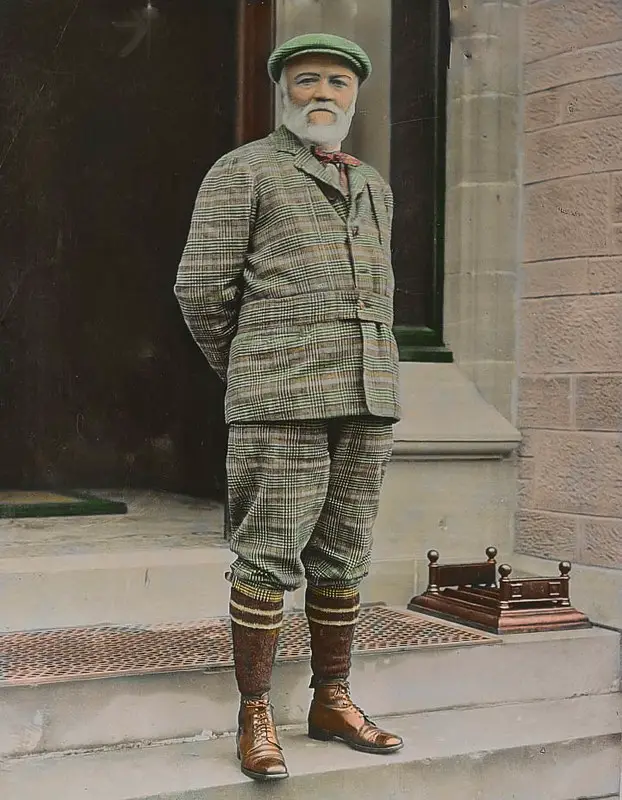Bargaining. Regardless of who you are, you need to know how to integrate bargain into both your work life and your personal life. It is always a possibility to negotiate when making a new deal with your boss, bargaining with any vendor at a major shopping center, or meeting your colleague who is involved in the new project you are starting.
Still, negotiations can be a dangerous area. There are times when you can’t handle the job, a project you rely on breaks down and disappears. There will be times when you have to deal with ruthless scammers who have coveted the last dime in your pocket. There will also be times when you will think about the principles you have established morally while you are hesitant about whether to cheat someone in the hope of a profitable contract.
In this summary, you will find ways to improve at the many different bargain moments you come across. You will examine the experiences of professional negotiators such as a famous banker J.P. Morgan and Akio Morita, co-founder of Sony. You will learn from their advice that anyone can implement the negotiation necessary for a profitable deal.
Try Audible and Get Two Free Audiobooks

Chapter 1 – A successful negotiator is one who accepts and promotes his strong abilities.
A Danish proverb says: “You have to bake with the flour that is available”. So, it’s better to use what you have than to claim what you don’t have. This should always be taken into consideration when a situation arises to be negotiated.
The method of bargaining in everyone’s work and personal life is different. Since the intensity of people’s competition level is different from each other, it is expected that the negotiation method is also different.
Steve Ross could be a good example of this. He first established Warner Communications and later became CEO of Time Warner. One day Ross started playing canasta, a card game, while on the Warner company jet. Near the landing of the plane, he lost the game, but instead of admitting this defeat, he asked the pilot to stay in the air until he won the card game. This was not a surprising decision Ross made. He could be just as competitive in getting business contracts.

On the other hand, there is an example of the famous American talk show host Larry King. As he climbed the career ladder, King’s manager tried to persuade CNN owner Ted Turner to raise King’s salary significantly. The main idea of his manager was to get King’s good offers from other agencies and use them as an advantage for a raise from Turner. However, during the bargaining, because of his conciliatory nature, King told Turner that he would continue to work at CNN even if there was only a certain amount of salary increase.
A person with a kind character like Larry King will have a hard time acting like an aggressive thief. And similarly, people with a competitive character like Steve Ross will have a hard time working with people who give up easily. So you have to know what kind of character you have and accept it. Otherwise, your negotiation method will turn into an inconsistent mess. And, people who are authentic always gain respect.
Don’t you have an innate competitive character? It is unnecessary to act like Steve Ross, who’s good at bargaining. You have to highlight your strengths. You may have the ability to listen well to the other party and decide where their needs and your needs intersect. Or you are capable of making a deal that everyone can agree on. Or, if you have a natural competitive character, you can find a way to take advantage of this feature.
In addition to accepting your natural character, there are some tips about negotiation that might be useful to everyone. The following sections will cover these tips.
Chapter 2 – It is necessary to set positive and justified assumptions to negotiate the best way.
In 1955, a small company in Japan invented the miniature transistor radio valued at $ 29.95. This new invention was very successful in Japan, but Akio Morita, the founder of the company that made the invention, was planning to spread this success, which is limited to Japan for now, to the whole world.
Morita believed in this invention with great hope. He knew that to increase the popularity of this small transistor radio worldwide, it must first bring it to the United States, which is the leader of the consumer market. This local company in Japan was named Sony.
With a firm belief that his company Sony will become a giant brand, Morita flew to New York to observe whether his new invention would be demanded by investors. In America, they initially distanced themselves from this invention. Morita later stated that investors in America did not fully grasp the importance of the invention. Emphasizing that his invention was quite small, they told him “American citizens will prefer big radios”.
Finally, Morita, who was stubborn with his confidence in his invention, managed to get the offer of Bulova, the important electronics investor of the period. Bulova set a single condition for purchasing 100,000 Sony transistor radios: The name Bulova would be written instead of Sony on the radio.
This practice was quite common at the time and eventually brought great gains. However, Morita did not accept the offer to write the name Bulova on his radio. The sales representative from Bulova was surprised by this refusal. He told Morita that the Bulova brand has existed as a respected name for almost fifty years. He explained that it would be wise to take advantage of the Bulova brand when no one is familiar with the name Sony. “You can be sure that in fifty years the name Sony will be as well known as you are today,” Morita replied without haste. After that, the time has already been shown. Morita’s radio was supported by another investor who did not object to the Sony name remaining above the radio, and Sony has managed to become a worldwide known brand today.

As can be seen from Morita’s example, it is more beneficial to set positive expectations in the negotiations than to focus on a fixed goal. You might ask, what’s the difference between the two? A goal is an abstract desire, but by assumption, you can define the limits of a goal that you can achieve.
When negotiating, your expectations give you the ability to persuade. Once a good situation assessment is done, knowing that what you are asking is not a remote possibility will provide the impetus you need to get success. Thanks to all the research and preparations you have done, your belief that your expectations can be realized will be solidified.
Akio Morita believed in the expectation of Sony to become a globally recognized brand. Observing that his invention had great success throughout Japan, Morita knew that this radio would also have a high consumption rate worldwide. In the negotiations, as Morita does, believing that your expectation will come true is to make sure you will achieve the success you want.
Chapter 3 – You can take advantage of norms to ensure success in negotiations.
Imagine that you are a nursing manager who is present at the budget negotiations at your hospital. You say that money is needed to recruit more nurses, but other departments need money.
You may need to wait for the decision-makers to decide with their perceptions which one will be the best choice for the hospital for the negotiations to end in your favor. So, you have to act following the principles they have set.
We all live according to certain principles. The most well-known principle of life is the laws that regulate society. However, principles that apply to certain issues such as business or behavior are also included.
Let’s go back to the budget negotiations at the hospital. Assume that the budget decision-makers firmly stated that the most important priority of the hospital is the best patient care. This decision is a principle determined by hospital managers. You too can use this principle to get the necessary money to hire more nurses in the hospital. So prepare well, get the necessary information, and match your budget request with the principle of patient care priority. The patient care principle determined by the hospital managers will allow them to approve the budget you demand.
Mahatma Gandhi took advantage of this principle in a different way. When Gandhi graduated from law school, he traveled to advocate for Indians living in South Africa. He was removed from the first-class section of the train he boarded in South Africa due to his ethnicity. It was a racist law in force at the time that allowed such behavior. This treatment shook Gandhi badly.

He took advantage of the social principles that existed in South Africa to dysfunctional the law for himself. According to a social principle in South Africa, well-dressed and well-behaved people were free to travel in the first-class division of train. So Gandhi dressed elegantly and went to buy the ticket that allowed him to travel in the first-class carriage. Thanks to his elegant clothes, the staff at the station mistaken Gandhi as a noble figure and sold him a first-class ticket.
When Gandhi got on the train, he shared a seat with an elegantly dressed Englishman like himself. When the person controlling the tickets wanted to get Gandhi out of the first-class wagon again due to his race, the British started to defend him. He said that people who dress well and behave well have the freedom to travel on the first-class part of the train, and Gandhi adheres to this principle. Gandhi was not taken out and completed his journey in a first-class wagon.
Whether you are in a political protest or a business negotiating, you have found a method that can benefit and work if you learn what the principles are.
Chapter 4 – It is open-minded and mutual interactions that are beneficial for negotiations.
In Kenya, they say: “Always leave a good trail behind you because you might return.” The adaptation of this phrase when it comes to business is to behave with dignity and generosity. So, to simplify, people treat you the same way you treat people.
Having the opportunity to benefit from someone does not mean that you always have the right to use this opportunity. Ultimately, your generous behavior means that you will be treated generously, and a respectful interaction will gain value later. It is possible to see this respectable method of behavior, in the example of business interactions between banker J.P. Morgan and businessman Andrew Carnegie.
During the 1873 economic crisis, Carnegie realized that some money was required to fulfill his responsibilities. Realizing his difficult situation, Morgan made an offer that he could buy Carnegie’s shares belonging to the Morgan family. Carnegie had no other choice but to accept the offer. He said he could sell his stake for a fairly decent amount, which he set at about $ 60,000. Morgan said he could afford it, and they started the selling process.

Later, Carnegie called Morgan to get the money he had requested for the shares. However, Morgan paid Carnegie $ 70,000 instead of $ 60,000, adding $ 10,000 to their joint price. Carnegie stated that there was a mistake in the money paid to him and the money was over-paid. Morgan’s attitude impressed Carnegie deeply. From that moment on, the two men have built a profitable friendship and business relationship, with which they will earn from that small amount to huge sums.
The importance of this relationship between Morgan and Carnegie was based on corresponding gestures. Reciprocity is the underlying reason for establishing a good negotiating interaction between the two parties. Therefore, take a step towards your opponent during the negotiation and wait for your opponent to step towards you before taking another step.
Also, keep in mind that true reciprocity is always balanced; try not to make bigger concessions for little favors done to you. Generous and accommodating people are often driven by others in the direction they want, as they are left compelled to respond. This is similar to when someone comes and offers you a service for a certain amount, even if you don’t need it. Even though you know that you can do better, you will be responsible to pay for their services. You should also be wary of deceiving people when negotiating in the business world. These types of people are quite common in a company as well as on the streets.
Chapter 5 – During the negotiation, you should know the source from which the other person gets strength.
Henry Ford says: “The secret to success is to follow the other person’s perspective and see things through their eyes.” Approaching things from the perspective of the other person in the negotiation process will take you one step forward.
People who specialize in bargaining can understand what is the source from which the opponent is powered. They know very well why the other side is at the negotiating table and they know how to make proposals that will please them.
For the negotiation to end as desired, this perspective requires making a valuable offer that will satisfy everyone. Kelly Sarber, a young entrepreneurial marketer, implemented this strategy when negotiating a contract for her waste-management company in Oceanside, California. Sarber, who was surfing as a hobby, knew that beaches were precious in Oceanside and its economy. She also knew that these precious beaches were threatened by dangerous coastal erosion and could deteriorate in a short time. So she came up with a logical solution. How so? The place where her company collected garbage was in the Arizona desert, abundant in the sand. So Sarber was aware of the erosion of the beaches and as a solution, she offered to bring fresh and clean sand on the way back to Arizona with every garbage convoy she took. She managed to get the contract because she softened the deal and offered such an offer that would work for the Oceanside executives.

Finding out who the people you are dealing with are as important as making offers to meet the needs of the people at the negotiating table when bargaining. Even though companies and institutions work towards certain strategies and goals, it is only human representatives you deal with in negotiations. It is these representative people’s needs, self-esteem, and motives that determine the direction of the negotiations.
If you know the people you are bargaining with, try to find out in which situations your interests and those of the other side coincide. Imagine being invited to an interview for a new job. If you realize that the person who wants to hire you is starting a new business and wants to pay less because he is just at the beginning, you may want some time to start. Noticing hidden details like these is a savior for you.
Chapter 6 – One of the important elements of negotiation is leverage.
There are many factors utilized during negotiation. Probably the most useful of these is known as leverage. Thanks to leverage, you can agree in negotiations and shape this agreement in your interests.
How is a bargain like a game of poker? Perception is the source of everything, both in poker and in negotiation. Professional negotiators and poker players without real leverage made people think they have trump cards. The dynamic quantity of leverage, its continuous variability is the main reason for this, and you can take advantage of these dynamics in some ways.
In other words, leverage means advantages that will make you superior to the other party in the negotiation; these can be obtained in different ways. And you can apply the leverage method in a few different ways. If you fail to reach an agreement in negotiations, you can make the other party lose its reputation. For example, you can request the participation of third parties to observe and make a decision in a negotiation where you are making reasonable offers. In the witness of third parties, the other party will feel pressure to conclude the negotiations with an agreement.
Another method for leverage is to always have a second option in the pocket. Consider the example of Janie Mitcham, the purchasing manager of the company known as Houston Lighting & Power Company or HL&P. HL&P was giving a decent amount to the Burlington Northern Santa Fe Railway, which transports coal to its major manufacturing station. The amount paid was quite compelling – $ 195 million a year – and it is no surprise that Mitcham was tired of it. However, Burlington Northern Railway was the only company to have the station to reach the HL & P facility. What could she do in this situation?

First of all, Mitcham demanded a reduction in the transportation fee, citing that the two companies have been doing business together for a long time and have established solid relationships. Burlington Northern remained unresponsive to this demand. But then Mitcham found a solution. Since she did not want Burlington Northern to be the only option, she planned to build her railroad and link her factory to the tracks belonging to Burlington’s rival Union Pacific Railroad. She forwarded this plan to the Burlington Northern Railway company and repeated her request to reduce the transportation fare. But the company executives did not take her idea seriously.
Mitcham acted after her managers approved the plan. Competitor rail, Union Pacific, offered Mitham’s business a 25 percent lower rate than Burlington Northern’s fee. With this plan, Mitcham applied leverage against both railroad companies and pressured them to lower the desired figure for the transportation fee. The railway, which was built thanks to Mitcham and named “Janie Rail”, now saves more than $ 10 million a year for the company!
Here you see the effect of leverage.
Chapter 7 – You can get out of the deadlock by being a little neutral and conciliatory.
Imagine sitting at a crowded meeting table and there are unemotional executives in front of you. They talk to each other in low voices and shake their heads in approval from time to time. You see one of them looking unhappy at the large Rothko print hanging on the wall.
There are some drawbacks. The negotiation is at an impasse. Your personals feel that the other party is very demanding and you are very stingy. You know your patience can no longer last. What do you have to do? First of all, calm your brain; then soften your attitude a little.
Negotiations are mostly done to reach a common decision. However, when the negotiations stop and you start to get bored, a settlement is not possible. In this case, it is time to be neutral. First, take your time and observe yourself from outside. Try to understand what your emotions are without revealing them. Are they suitable for the current situation?
Next, check what your perception is. You should realize that the attitude of the people sitting before you is not about their inherent personality. This is all the effect of negotiation.
If you do not take this influence of the negotiating environment into account, you will see them as a selfish, irrational foe and yourself as a repressed victim. Such thoughts will lead the negotiation into an impasse that is difficult to reverse.

If you can contain these thoughts, you can move on to the second stage known as softening. For this, take a small and clear step in favor of the other side. This could be a compromise to one of their wishes or the admission of previous mistakes. If the other party responds to your step, you can take your second step. Keep this situation going until you get rid of the impasse and eventually negotiations will start again.
Enver al-Sadat, the Egyptian President, used this cycle in his meeting with the Israeli authorities on November 19, 1977. Israel and Egypt had been at war for a long time. That’s why this visit was significant. Sadat’s visit to the wartime was a small step towards peace with Israel. This visit later enabled the signing of the Camp David peace agreement between these two states and made Israel give back the Sinai peninsula to Egypt. It was at the peak that Sadat and the Israeli Prime Minister Menachem Begin received the Nobel Peace Prize together in 1978 when the relations between the two states softened with the steps taken by each other.
We may not come across such a sequence of events often. However, softening steps can positively affect the result in a personal initiative or a planned negotiation.
Chapter 8 – Bargaining ethics has three different doctrines.
Imagine you are in an antique shop. You notice that there is a beautiful globe in the old and worn-out furniture by the window. You read the price tag on the globe. Ah. This price is slightly above what you can afford. You realize that the old shopkeeper is slowly coming towards you. She smiles sincerely and points to the globe.
What will your answer be? Are you going to say “Yes, I will take it”? Or will you try to make a long introduction and bargain? Your answer gives a lot of information about you. Ultimately this demonstrates the bargaining ethics you offer for negotiation.
There are many negotiation strategies you can follow in your professional business life. However, almost all of these are shaped around three foundations. Poker School is the first one. Those who follow in the footsteps of this school presume negotiation as a game surrounded by well-defined rules. These rules are created by law to prevent deception, coercion, or disturbing abuse. Everything is allowed as long as it is within these rules.

Many gaps can be tolerated in this ethic. Going back to our example, if the visitor to the antique shop was a member of the Poker School, he would not hesitate to lie down to buy an old globe. Indeed, if the deception is effective, it is a tolerable flaw for the school.
The Pragmatist School doesn’t make a little bit of deception a big problem either. However, if the members of this school know that there are better options for resolving the issue, they will not resort to deceit and lies. Unlike those who use Poker School ethics, they know their reputation will suffer when their lies come out. They strive to keep their solid business networks and their reputation in business or society safe.
Last in line is the Idealist School. The basis of this school ethics is the view of the philosopher Immanuel Kant, who believes that people should not resort to deceit no matter what situation they are in. As he emphasizes, they think that if everyone chooses to lie, our social life will be complicated. According to idealists, negotiations are important actions, and actions with consequences should not be perceived as a game. Warren Buffet, a well-known successful and honest businessman now known to have embraced the ethics of the Idealist School, is a good example. He is the most obvious example that business success will not always be shaped around lies and deceit as it is in a Machiavellian approach.
Bargaining for Advantage: Negotiation Strategies for Reasonable People by G. Richard Shell Book Review
You can be competitive from birth or you are good at being collaborative. Regardless, you can be successful in bargaining as long as you know your real character. However, you should also know some methods to increase your negotiating power. These strategies are to rely on strong assumptions, respect each other, and interact reciprocally. Yet there is no compulsion. The leverage factor is also indispensable in the bargaining process.
Always have a trump card at the negotiating table.
To handle the situation well, you must give a sign of your loyalty and understanding of the other party. This sign can be a cute toy with the company logo on it or a food offer with a clever pun on their name. In this way, you can achieve the act of cooling down the negotiation process, where you realize things will heat up a little.
Try Audible and Get Two Free Audiobooks
